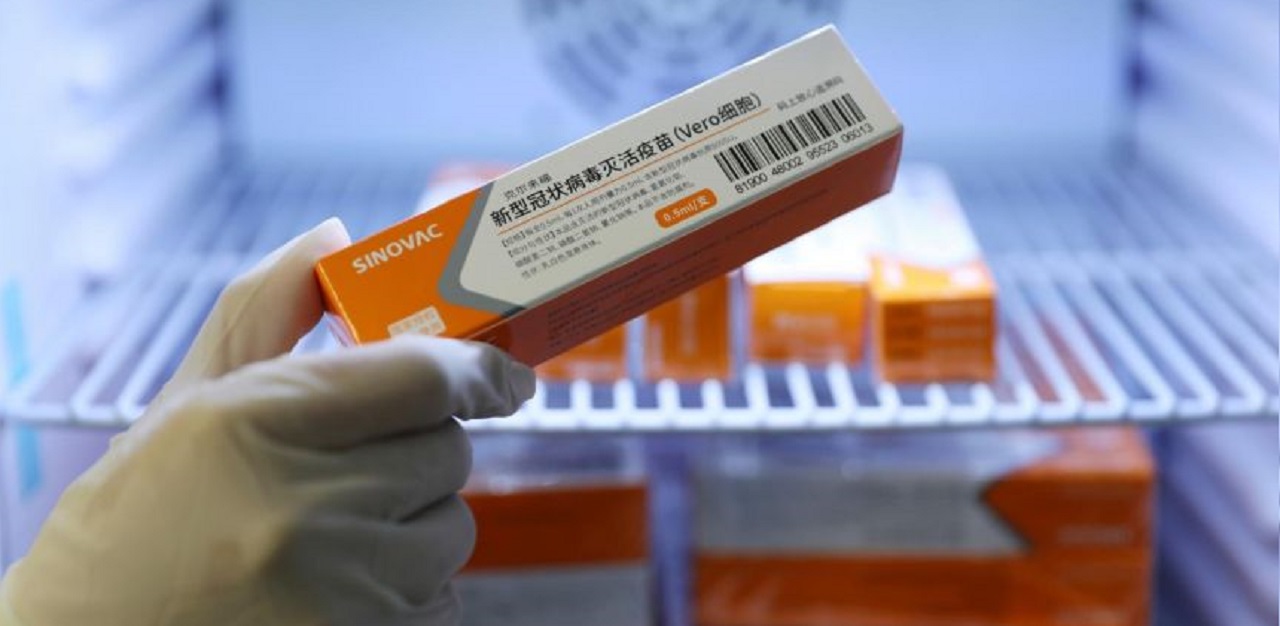Sinovac vaccine is in Singapore, but not yet approved
Singapore has received its first shipment of China’s Sinovac vaccine, but has yet to authorise it for use.
Health Sciences Authority (HSA) is waiting for Sinovac’s complete submission of all necessary information to conduct an assessment of the manufacturing process, safety and efficacy of the vaccine under the Pandemic Special Access Route. This is also the same route that gave both the Pfizer and Moderna vaccines an interim authorisation.
To authorise the vaccine, manufacturers have to monitor the longer-term efficacy of vaccines to determine its duration of protection against the coronavirus. To determine its full safety profile, they also need to follow up on their product safety for a longer period of time.
The Pfizer and Moderna vaccines both involve injecting bits of the virus’ genetic material into the body to stimulate an immune response. Sinovac, on the other hand, is a more traditional inactivated vaccine that uses killed virus particles. This method has been used in vaccines for diseases like polio.
The Sinovac delivery to Singapore cements the agreement made by both China and Singapore to cooperate on pandemic matters.
Singapore in talks with other countries on vaccine certification
Singapore is in the midst of discussing the mutual recognition of COVID-19 vaccine certificates with other countries, a necessary step to resume global travel in future.
Every person who underwent a COVID-19 vaccination in Singapore will get a vaccination card. This card contains information such as the vaccine brand, vaccination dates, and the person’s personal particulars. All these local COVID-19 vaccination records are also stored in a digital format in the National Immunisation Registry. These vaccination records can also be viewed on the Ministry of Health’s (MOH) HealthHub app, which is accessible via SingPass.
Having global digital vaccination certificates is helpful for Singapore to determine which visitors to let in. In particular, it allows Singapore to check the authenticity of the visitors’ vaccination certificates. Currently, there is already a system for issuing digital COVID-19 test certificates for travellers and visitors. This system will be extended to digital vaccination certificates as well.
Singapore’s vaccination exercise started on 30 Dec 2020 after administering the first shots to healthcare workers in the National Centre for Infectious Diseases (NCID). Following that, vaccination was made accessible to the elderly and other essential workers.
One-shot vaccine by Johnson & Johnson is effective and safe
After undergoing trials, the US Food and Drug Administration (FDA) concluded that Johnson & Johnson’s one-shot vaccine is safe and effective. This sets the basis for the vaccine’s approval for emergency use.
Johnson & Johnson said that its vaccine was effective at preventing asymptomatic infections. In a preliminary trial analysis, the company found two cases of asymptomatic cases in the the vaccine group and 16 cases in the placebo group, indicating an 88 per cent efficacy rate. The reduction of asymptomatic cases is said to suggest that the vaccine may cut disease transmissions.
This one-shot vaccine was effective in reducing COVID-19 risks and preventing polymerase chain reaction (PCR) test confirmed COVID-19 at least two weeks (14 days) post-vaccination.
In a global trial of nearly 44,000 people, Johnson & Johnson’s vaccine was 66 per cent effective at preventing the coronavirus against many variants. The company aims to deliver 20 million doses by end March, and the US government is expediting the delivery of the contracted 100 million doses which the firm has promised by end June.
One advantage of this vaccine is that storage is relatively easier. With significantly less stringent storage requirements, it can be stored at common refrigerator temperatures, unlike both the Pfizer and Moderna’s vaccines which require sub-zero freezers.
The Johnson and Johnson vaccine works by introducing the body to the genetic code for spike proteins covering the outside of the Coronavirus. This is done through a technology known as ‘viral vector’, which uses a weakened virus to deliver the genetic payload. This helps the body’s immune system recognise the Coronavirus.
Some typical adverse reactions to the vaccine were injection site pain (48.6%), headache (39%), fatigue (38.2%) and myalgia (33.2%). Other side effects included a fever (9%) and a high fever (0.2%).
However, one case of pericarditis, a heart disease, may be a side effect from the vaccine. Other cases of Guillain-Barre Syndrome, a rare disorder, were likely unrelated to the vaccine although there is not enough data to confirm it. Like the Moderna vaccine, children under 18 cannot receive the Johnson & Johnson vaccine, even though they are believed to be efficient COVID-19 spreaders.
Join the conversations on THG’s Facebook and Instagram, and get the latest updates via Telegram.














